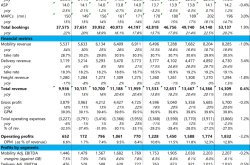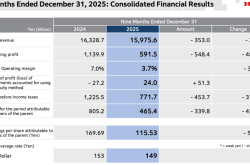Meituan, Hidden Behind 7.45 Million Riders
![]() 08/20 2024
08/20 2024
![]() 674
674

The plight of riders extends beyond the 'last mile'. Meituan needs to explore fundamental solutions to alleviate social conflicts and assume its social responsibilities.
Recently, the movie 'Retrograde Life' starring Xu Zheng has been popular, featuring the life of a food delivery rider. However, reality is often more dramatic than fiction.
On August 12, a netizen reported that a Meituan food delivery rider in Hangzhou tried to cross a greenbelt during the lunch rush hour but accidentally damaged a guardrail. The security guard then took away the rider's electric bike keys and demanded compensation. During the dispute, the rider knelt down to avoid delaying other orders.
The video of the rider kneeling quickly spread among the local rider community, and some riders went to the scene in the afternoon to support the kneeling rider and demanded an apology from the property management.
The incident sparked heated discussions on social media and trended on hot topics. Early on August 13, the police issued a statement saying that the local police station immediately responded to the scene and investigated the parties involved, vowing to handle the case according to the law.
After the incident, Meituan promptly responded that it would thoroughly investigate any potential unfair treatment of riders and cooperate with relevant departments to safeguard their legitimate rights and interests based on their demands.
However, netizens were unimpressed with Meituan's response, with some sarcastically commenting, 'The media always speaks up for food delivery riders, while the platform always passes on the blame.'
In fact, social conflicts involving food delivery riders have been frequent in recent years. As a leading local life services company, Meituan has repeatedly responded, but beneath the grandiose official language lies a lack of clarity about the root causes and solutions to these controversies.
01 Riders Have Suffered for Too Long Under the 'Super Brain'
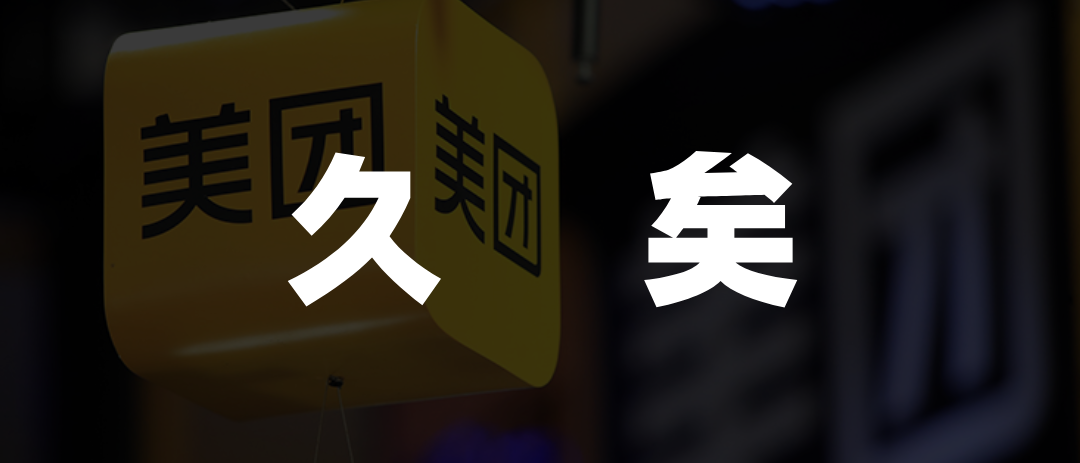
The conflict between food delivery riders and community security guards has a long history. Less than a month before the incident of the kneeling rider, another rider was locked up by security guards for entering a residential community without permission.
The root cause lies in each party performing their respective duties.
For some residential communities, shopping malls, and office buildings, strict regulations are in place for outsiders. Without proper registration, outsiders are not allowed to enter. If security guards let food delivery riders in without following regulations, they may face safety risks and fines from their superiors.
For food delivery riders, their actions, such as rushing against time, entering communities, and riding fast, are dictated by the platform's system, known as Meituan's 'Super Brain.'
Meituan's Super Brain is an AI-powered instant delivery system developed to ensure timely delivery and user experience. It automatically assigns orders based on factors like rider routes, weather, traffic conditions, estimated delivery times, and restaurant preparation times, optimizing matches between consumers, riders, and merchants.
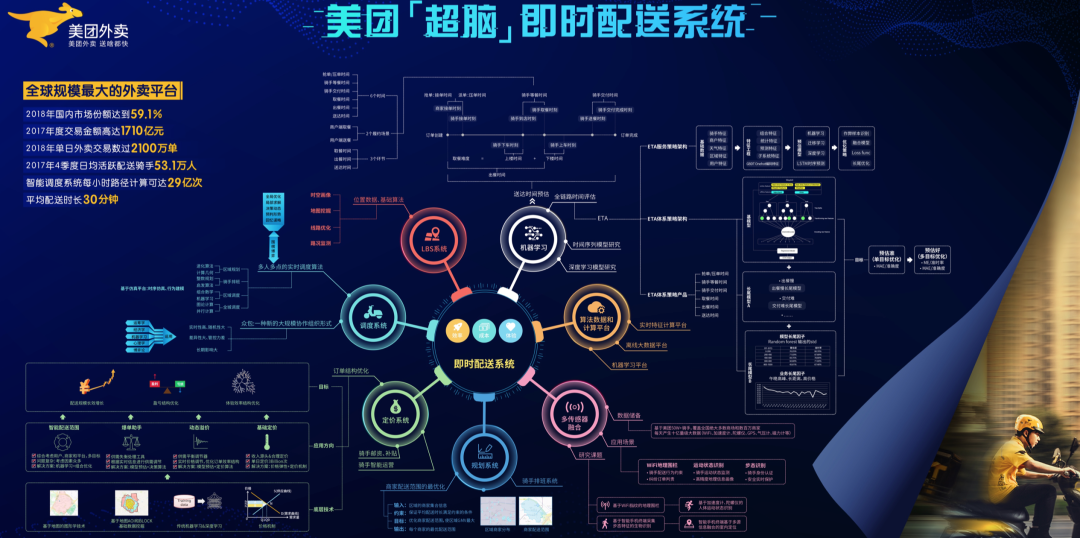
Under the Super Brain system, food delivery riders function like individual components, each performing their assigned tasks. Any deviation from the rules can result in severe penalties, with delivery efficiency directly tied to riders' income.
According to a leaked document, Meituan deducts 40% of the delivery fee for delays of 0-6 minutes, 50% for 6-12 minutes, and 70% for over 18 minutes. With an average income of around RMB 5 per order, even a small delay can significantly reduce a rider's earnings.
The Super Brain system predicts delivery times based on precise rider locations, order assignments, weather, traffic conditions, and more. It uses GPS, WiFi, and Bluetooth to monitor riders in real-time and capture their movements using phone sensors to adapt to various delivery scenarios.
However, due to uncertainties in outdoor environments, riders often encounter unexpected situations like slow food preparation, heavy traffic, or slow pick-ups. To avoid delays, riders may resort to risky behaviors like running red lights or driving against traffic, increasing the risk of accidents.
In July, Meituan launched a pilot program in Beijing offering '15-minute express delivery,' promising to complete orders within 15 minutes and offering a RMB 2 red packet for each minute of delay, up to RMB 10. Prior to that, Meituan also introduced a '30-minute delivery' service.
With delivery times continually shortened, riders have less time to handle unexpected situations. Any delay or customer complaint can result in fines ranging from RMB 50 to RMB 100, in addition to deductions for lateness.
02 The Two Sides of Expansion

In recent years, platforms like Douyin, Kuaishou, and Xiaohongshu have entered the local life services market, continuously optimizing food delivery services and tapping into the consumption potential of their loyal users. With Ele.me catching up from behind, the increasingly crowded market has forced Meituan to find ways to compete.
Amidst slowing growth in order volume and transaction value, Meituan chose to leverage its 'Pinhaofan' business to gain a price advantage.
Launched in 2020 and officially rolled out in 2022, Pinhaofan is positioned as a low-cost food delivery product targeting the lower-tier market. It has gained popularity this year, with daily orders averaging nearly 5 million in Q1 2024, accounting for approximately 10% of Meituan's daily food delivery orders in Q4 2023.
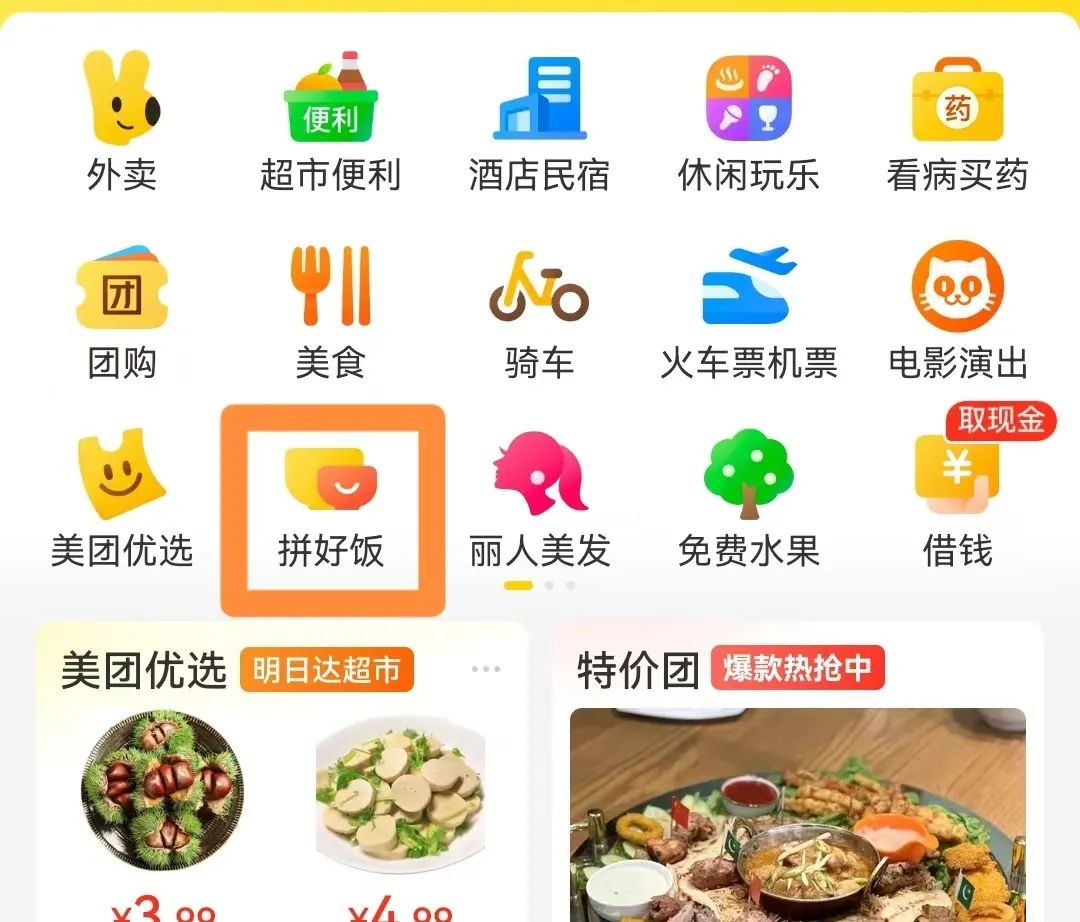
Under the Pinhaofan model, riders can optimize delivery efficiency by delivering multiple orders at once. However, the total number of food delivery orders has not increased significantly, and with lower delivery fees per order, riders need to deliver more orders to maintain their income. Some riders have reported that multi-order deliveries can be challenging, with some orders located in different buildings, resulting in no reduction in delivery difficulty but a decrease in income.
Meituan's Q1 2024 financial report revealed revenue of RMB 73.3 billion, up 25% year-on-year, with a net profit of RMB 5.4 billion, up 59.9%, and an adjusted net profit of RMB 7.488 billion, up 36.4%.
Meituan's food delivery business continued to grow in Q1, with annual active users increasing to nearly 500 million and instant delivery orders reaching 5.46 billion, up 28% year-on-year.
According to Meituan's official website, the platform had 7.45 million food delivery riders in 2023. This vast rider community supports the growth of Meituan's food delivery business, but the rider benefits protection system, as a moat for business development, is still inadequate.
03 System Optimization Needed
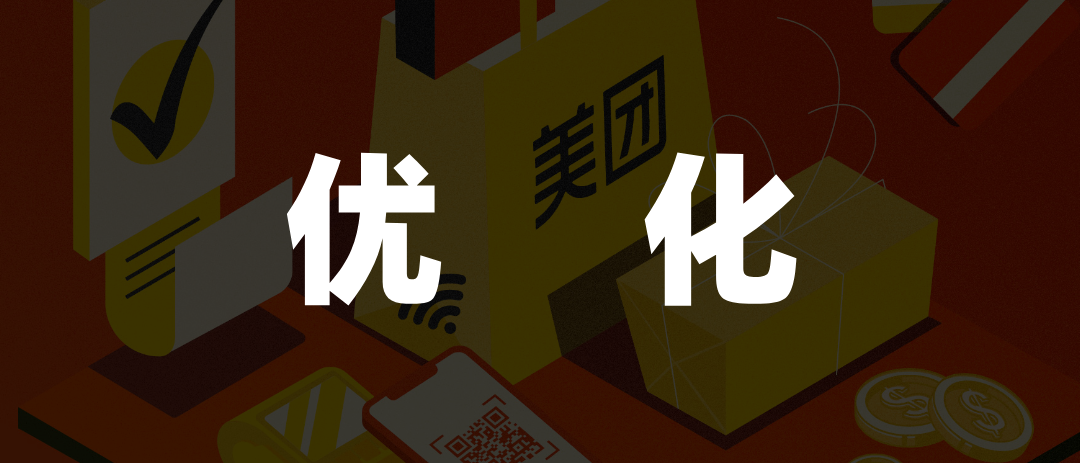
On Meituan's official website, the company claims to safeguard riders' labor rights and enhance their work experience through various measures such as insurance coverage, upgraded technology equipment, fire safety prevention, and safety training courses.
It is undeniable that Meituan has made efforts to address the 'last mile' issue in food delivery.
Recently, a Meituan representative stated that the platform is actively collaborating with various parties to accelerate the 'Rider-Friendly Community' project, which has covered over 500 communities in more than 20 cities as of mid-August. These communities provide green channels for riders, designated parking areas, and rider stations. The Meituan Rider App has also been updated with maps of these communities to facilitate riders' navigation.
Furthermore, Meituan has introduced the 'Xiaoge Code,' a unique electronic pass for riders, making it easier for them to locate buildings.
However, the challenges faced by food delivery riders extend far beyond the 'last mile.'
Due to the nature of their work, riders are constantly on the road, racing against time to meet delivery deadlines. This has led to a disproportionately high number of traffic accidents involving food delivery riders. Stereotypes like 'reckless driving' and 'running red lights' have become hard to shake off.
Recently, cities like Guangzhou, Zibo, Qingdao, and Zhuhai have issued regulations governing the use of electric bicycles in instant delivery services, limiting their maximum speed to 25 km/h. Guangzhou's Market Regulation Bureau plans to suspend riders with more than three violations within a week from all delivery platforms for at least one day to curb traffic violations.
When speed limits are imposed without relaxing delivery deadlines, the conflict between regulations and delivery platforms only hurts riders.
Regarding the negative review appeal mechanism, Meituan launched the 'Tongzhou Plan' in 2020 to continuously improve rider communication based on the goal of 'responding to riders' demands.' However, many riders report that their appeals for unjust negative reviews are often rejected.
When incidents like riders threatening customers over negative reviews occur, public attention often focuses on the riders and customers, while the hidden delivery platforms receive more leniency. In reality, platforms should reflect on how to improve rider quality, ensure positive feedback for reasonable rider appeals, and help riders set boundaries in the face of unreasonable customer demands.
As a leading local life services company, Meituan has been busy competing, reforming, expanding, and investing in technology. However, with drones and autonomous vehicles still far from replacing human riders, the over 7 million food delivery riders remain a crucial moat for Meituan's main business. Instead of shifting blame after social incidents, Meituan should assume social responsibility, optimize its system algorithms, improve appeal and feedback mechanisms, and fundamentally explore ways to alleviate social conflicts.



